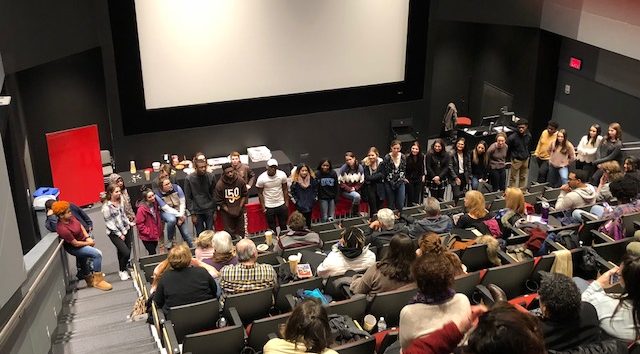Frolf is a game, but it’s bigger than that to me. The path we weave through campus has become a familiar part of every weekend, and teaching underclassmen the same way upperclassmen used to teach me makes me feel far too old and mature.
Bernard talked a lot about story, which for me is something that is hard to significantly develop on the fly. Her description of “finding” the story during production(P 34) is the very definition of social media in my life. She described how there is a misconception that documentarians somehow stumble upon wonderful stories without planning. In reality, there is always a complex, well thought out plan that has been formulated in advance. Occasionally, this plan will change slightly in production or post-production. However, this does not imply that a lack of plan would have yielded the same results. Thus, I asked myself how can I merge the intention of this assignment with the ideas presented by the reading? My plan for production was a hybrid between the two: I decided to go out without a super concrete plan for shooting, as this is always my approach for social media. In the moment, some event grabs my attention, and I simply pull out my phone and start recording. However, I planned on recording a great variety of footage, interviews with others and myself, footage of throws, and selfies of myself. Thus, in post production I would have a variety of distinct stories that I might be able to tell with all of the different pieces I had recorded.
In post production, I asked myself what is this story about? Is my story relevant? Do I have a legitimate hook? This exercise was a struggle on both of those accounts, how do I make someone care about something that it is important to me. Therefore, I realized that this video is about me, and what frolf means to me. Rather than an explanation of what frolf is, or perhaps a montage of good shots, this insta video is supposed to be my experience of frolf. A pov through my eyes of how the game is both a tangible activity and a cultural artifact of my Lafayette experience.
IMPORTANT Password to view: documentary
